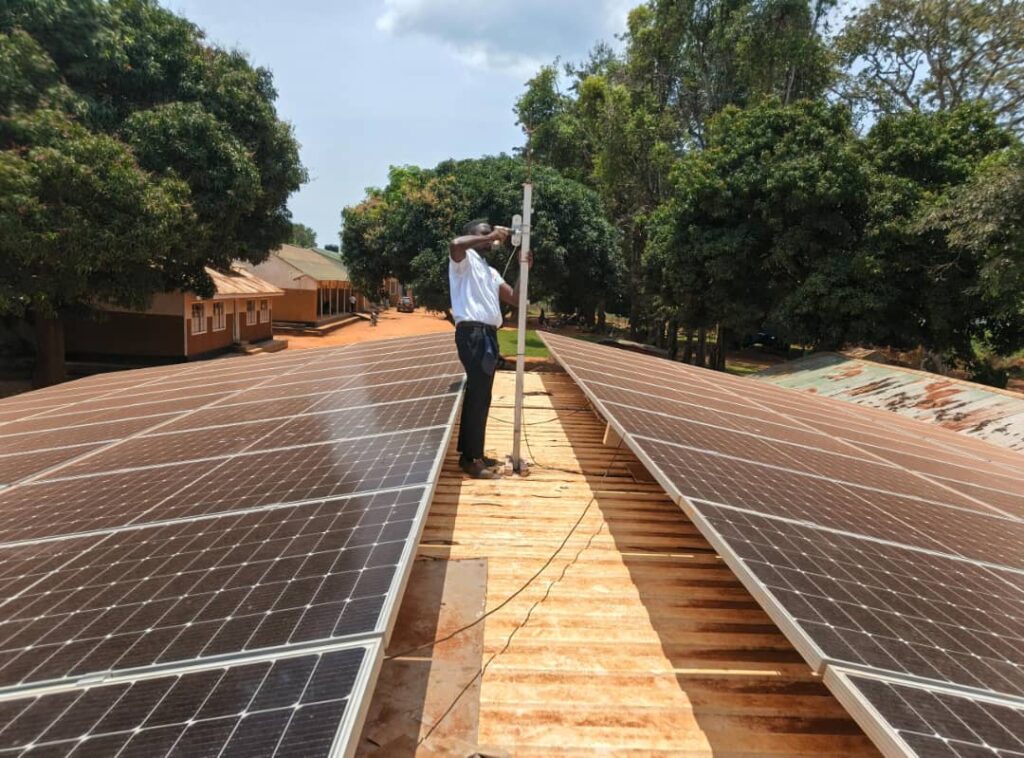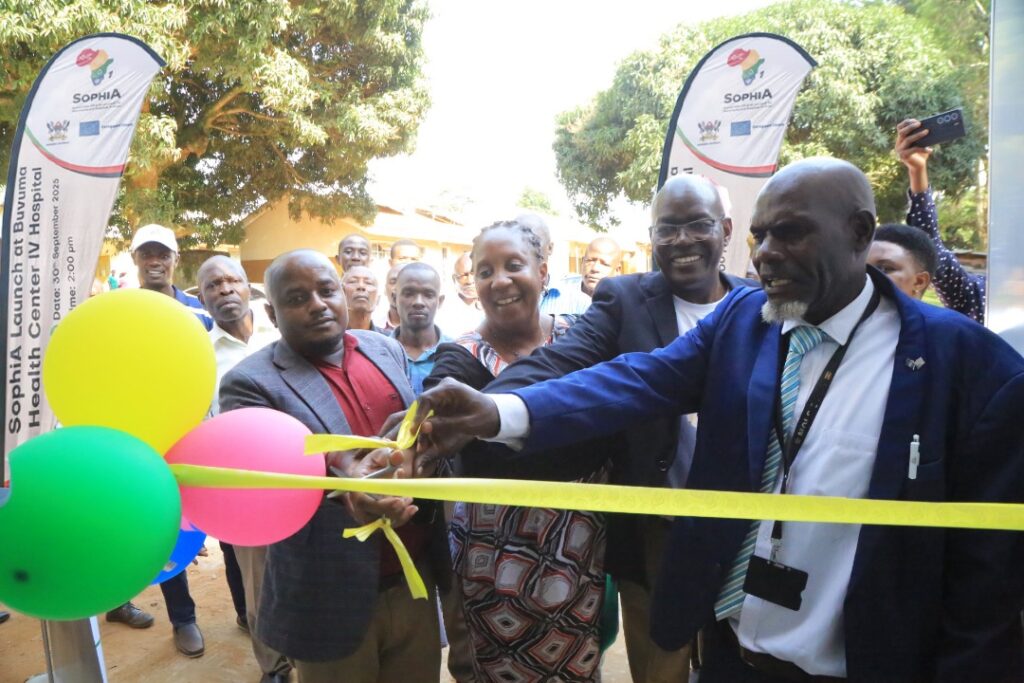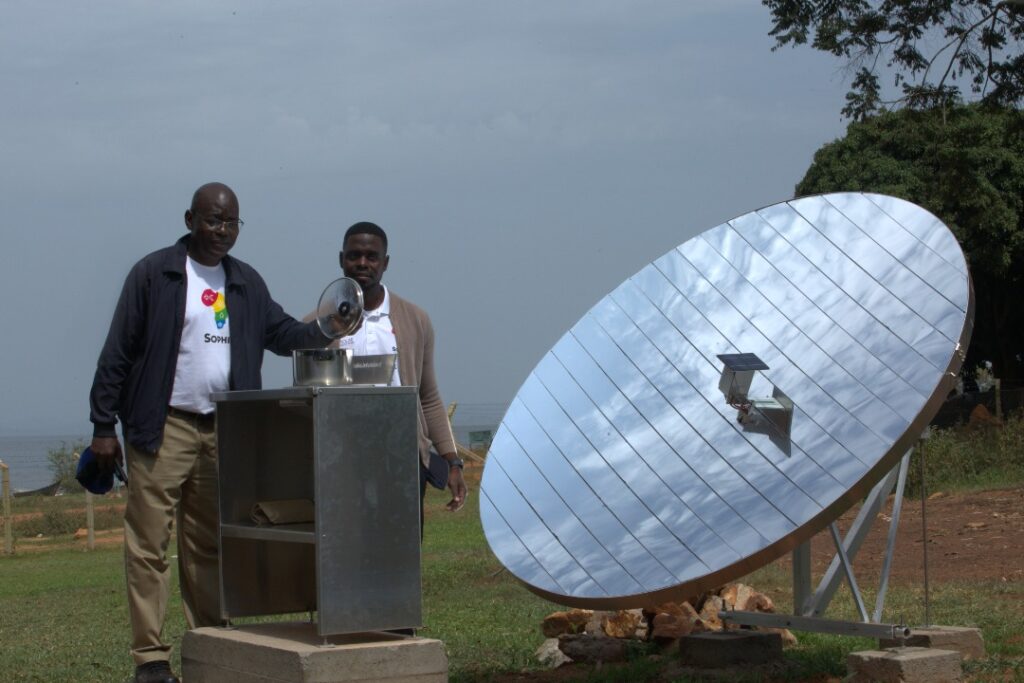
By Joseph Mary Buwule
Buvuma Island, Uganda
For years, Buvuma Health Centre IV — perched on one of Lake Victoria’s far-flung islands — has been a symbol of resilience amid adversity. Serving thousands of people scattered across Buvuma District’s 52 islands, the facility struggled with power outages, unsafe water, and inadequate storage for life-saving medicines.
But this year, a quiet revolution began. Makerere University, through the Sustainable Off-grid Solutions for Pharmacies and Hospitals in Africa (SophiA) Project, has given the island hospital a new lease of life — a solar-powered water and energy system that is transforming the way healthcare is delivered in one of Uganda’s most remote outposts.
A Lifeline Where the Grid Doesn’t Reach
Accessing Buvuma is a journey that tests patience and determination. Boats ferry people, supplies, and hope across miles of open water. Yet, once there, health workers have long had to improvise — performing deliveries under torchlight, storing vaccines in unreliable coolers, and fetching water from unsafe sources.
That is now changing. Installed under the European Union–funded SophiA Project, the new system at Buvuma Health Centre IV delivers what was once unimaginable: clean water, stable electricity, hot water for sterilization and bathing, and reliable cooling for vaccines and medicines — all powered by the sun.

“This facility is no longer just surviving; it’s thriving,” says Dr. Dyanabo Remigio, the hospital’s Senior Medical Officer. “We can now store blood safely, keep vaccines potent, sterilize our tools, and provide clean drinking water — all without worrying about blackouts.”
Innovation in a Container
The heart of this transformation lies inside a specially designed container. Compact yet complex, it houses an integrated network of systems — from power generation and water purification to refrigeration and steam production.
According to Assoc. Prof. Nicholas Kiggundu, Principal Investigator of the SophiA Project at Makerere University’s Department of Agricultural and Biosystems Engineering, this innovation represents the future of sustainable healthcare infrastructure.
“The containerized system combines multiple utilities in one modular unit,” Prof. Kiggundu explains. “It produces 36 kilowatts of solar power, backed by a 13 kVA generator for cloudy days. It filters and purifies water through ultrafiltration, produces de-ionized water, generates steam for sterilization, and provides refrigeration for medicines and vaccines.”
At the center of it all is a Supervised Control and Data Acquisition (SCADA) system — a computerized platform that monitors every process, ensuring efficiency, safety, and data-driven management. To enhance safety, the compressor and condenser are placed in a separate ventilated chamber, reducing fire risks associated with natural refrigerants like propane (R290).
Hot Water, Cold Storage, and Clean Energy
Beyond power generation, the SophiA system brings practical improvements to the hospital’s daily operations. The maternity ward now has Xsol solar water heaters, offering mothers and newborns warm bathing water — a small comfort with big health benefits.
Outside, Scheffler solar shields — large reflective dishes — harness sunlight to produce heat up to 200°C, allowing staff to cook meals and sterilize equipment using renewable energy.
“This project is holistic,” says Prof. Kiggundu. “It’s not just about electricity. It’s about creating a complete, sustainable ecosystem that meets the daily needs of patients and staff.”

Research Meets Real Life
Representing Makerere University Vice Chancellor Prof. Barnabas Nawangwe at the commissioning ceremony, Prof. Julia Kigozi, Dean of the School of Food Technology, Nutrition and Bio-Engineering, said the SophiA Project exemplifies Makerere’s mission as a research-led university solving Africa’s real challenges.
“We are here to celebrate innovation with impact,” she said. “Only 28 percent of health facilities in Sub-Saharan Africa have reliable electricity. Projects like SophiA bridge that gap — they take research from the lab and put it where it changes lives.”
Prof. Kigozi noted that the same model has been replicated at Mua Mission Hospital in Malawi, creating a cross-border learning platform for Makerere students and African researchers focused on sustainable energy and health technology.
She also paid tribute to the late Prof. Noble Banadda, one of Uganda’s leading innovators in renewable energy and a key visionary behind the SophiA initiative. “His work continues to inspire us,” she said. “He believed science should serve humanity — and that belief lives on here in Buvuma.”
A Partnership Powering Change
The SophiA Project — funded by the European Union’s Climate, Infrastructure and Environment Executive Agency (CINEA) — brought together 13 organizations from Europe and Africa, united by a goal to make healthcare energy-independent and environmentally sustainable.
Launched in October 2021 and concluded in September 2025, the project was piloted in Burkina Faso, Cameroon, Malawi, and Uganda, each chosen for its unique energy and healthcare challenges. The systems combine renewable power generation, efficient cooling, and water purification technologies suitable for off-grid environments.
Community Gratitude and Commitment
At the commissioning event, local leaders described the installation as a “turning point” for island healthcare.
“This is more than infrastructure; it’s hope made visible,” said Mr. Waswa Adrian Ddungu, the Buvuma District Chairperson. “For years, our medical workers struggled to save lives without electricity or clean water. This project restores dignity and confidence in our health system.”
Mr. Mboge Issa, the District Chief Administrative Officer, announced the formation of a local supervisory committee to oversee maintenance and sustainability of the facility. “We will protect and preserve this investment so that future generations can benefit,” he pledged.
Beyond Buvuma: A Model for Africa
What’s happening in Buvuma is about more than one island. It’s a glimpse into what is possible when research, innovation, and collaboration converge around community needs. The system’s modular design means it can be replicated in other rural settings, adapted to scale, and maintained locally — a crucial step toward Africa’s energy independence in health service delivery.
For Makerere University, the success of the SophiA installation affirms its leadership in applied research that addresses the Sustainable Development Goals (SDGs), particularly those focused on health, clean energy, and climate resilience.
As the evening sun sets over Lake Victoria, the solar panels at Buvuma Health Centre IV continue to gleam — quiet, steadfast, and reliable. Inside the maternity ward, lights stay on, incubators hum softly, and clean water flows from a tap that once ran dry.
For the people of Buvuma, this isn’t just about technology. It’s about dignity, progress, and the power of innovation to light up the path toward a healthier future.